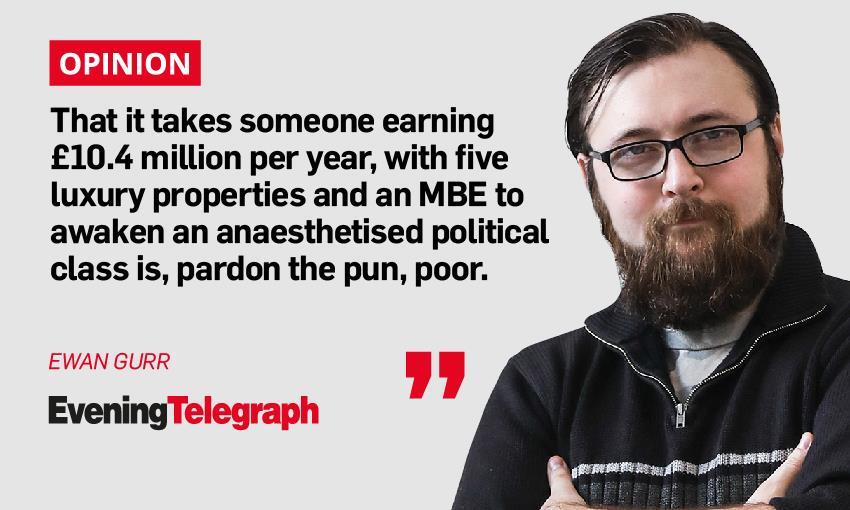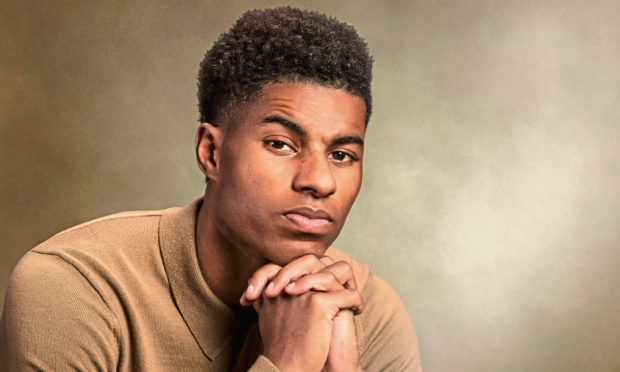Challenge Poverty Week 2021 has just ended.
That’s the week when people who are not experiencing poverty talk to other people who are not experiencing poverty about people who are experiencing poverty.
Prior to his own escape, Darren McGarvey wrote in his 2018 Orwell prize-winning book, Poverty Safari: “Look out for these people who pay lip service to giving the working class a voice, but who start to look very nervous whenever we open our mouths to speak.”

My mix of emotions is accentuated because, last month, I completed my last shift for my most recent employer, after three years.
I have officially rejoined the ranks of the unemployed and signed on for Universal Credit.
My income will drop below what the Scottish Government defines as the poverty line.
For however long I remain here, I look around me to see who is raising their voice to highlight the plight.
Tomorrow, I work my last day on @SocSecScot board and return to the ranks of the unemployed. In 2018, I joined a wee team with a big vision of social security as an investment in the people of Scotland. I have been humbled to serve alongside professionals with principles.
— Ewan Gurr (@EwanGurr) September 22, 2021
Throughout history, there have been advocates who spoke not from a lofty place but among us.
They tended to be of a religious persuasion – Jesus, Brother Walfrid or Mother Teresa.
Dom Helder Camara, while working with poor Brazilians in the 1950s, said: “When I give food to the poor they call me a saint but when I asked why there are so many poor people, they called me a communist.”
So where are our current allies?
Here’s where they’re not
Firstly, they are not in the voluntary sector.
An event run last Friday by Christians Against Poverty announced: “We’ll be sharing lived experience of the impact of poverty”.
The panel was populated by professionals with titles like network director, policy manager and network lead.
Their combined income was likely to be well over £100,000 a year. Those are the kind of sums that shield your lived experience from the impact of poverty.
So great to be part of another fantastic #ChallengePoverty Week and to see so many organisations unite across Scotland to call for an end to poverty. #NowIsTheTime https://t.co/KNyLK6S84V
— CAP Scotland (@CAPscot) October 10, 2021
Secondly, they are not in politics.
Members on the left exploit Universal Credit to talk about people being plunged into poverty.
I’m no Conservative apologist but, as a beneficiary, I do respect they are the party responsible for the uplift during a period of national turbulence.
To describe it as “a cut” is disingenuous.
If we are going to highlight deficiencies inherent in Universal Credit, let’s do it with some integrity.
Spare us from celebrity saviours
Thirdly, our allies are not celebrities.
Marcus Rashford, in a column for The Spectator last month, wrote: “I’d be doing a disservice if I did not use my platform to speak on behalf of the millions whose voices are not being heard.”
What paternalistic voice-for-the-voiceless-esque drivel.
Since when did those experiencing poverty become mute?
As Arundhati Roy said: “There’s really no such thing as the ‘voiceless’. There are only the deliberately silenced or the preferably unheard.”
Finally, our advocates are not the ex-poor who, having written about their poverty have, emancipated themselves from it.
There is nothing wrong with Darren McGarvey, Kerry Hudson, Cash Carraway and Jack Monroe carving out new lives for themselves.
But should they still accept media invitations to speak about the uplift ending when some of them have never lived on Universal Credit and cannot speak from experience of it?
Well two and a half million people read this thread apparently. Sometimes being furious on the internet is worth doing, I guess. https://t.co/sW5vseKsLp
— jack monroe (@BootstrapCook) October 7, 2021
King Solomon, in the Book of Ecclesiastes, wrote: “… the poor man’s wisdom is despised, and his words are not heard.”
That it takes someone earning £10.4 million per year, with five luxury properties and an MBE to awaken an anaesthetised political class is, pardon the pun, poor.
What we need is the silenced and unheard to use their voices.
They have a story many more need to hear, no matter how much it makes the voluntary sector folk, politicians, footballing celebrities and the ex-poor squirm.
We can speak for ourselves.
